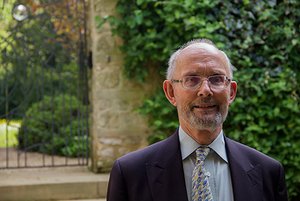The Founder's Lecture
2019: Transatlantic Crossings: Winston Churchill, Anglo-America and the 'Special Relationship' Revisited
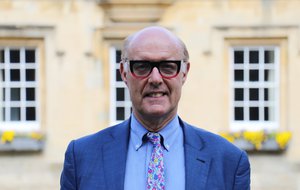
The 2019 Founder’s Lecture was given by alumnus, and Honorary Fellow, Professor Sir David Cannadine (1972, Modern History). President of the British Academy, Dodge Professor of History at Princeton University, Editor of the Oxford Dictionary of National Biography, and Visiting Professor at the University of Oxford, he is the author of many books, including Victorious Century: The United Kingdom, 1800 - 1906; The Decline and Fall of the British Aristocracy; and Class in Britain. He has also written biographies of George V and Margaret Thatcher.
Sir David’s lecture explored the complex and fascinating story of Winston Churchill's relations with the United States, beginning with his early visits during the late nineteenth and early twentieth centuries, and reaching a high point during the Second World War. As the child of a British father and an American mother, Churchill felt a special affinity with the United States, believing that the unity of the English speaking peoples was the best way of preserving British influence and of promoting peace, progress and prosperity throughout the world.
This alliance was, however impacted throughout the twentieth century, by many shifts in global positions and power, with the decline of the British Empire and the United States becoming, in the words of US Secretary of State Madeleine Albright, ‘the indispensable nation’.
The relationship between the US and the UK has not always been straightforward, and particularly during the war years Churchill found it more difficult to manage than he would publicly admit, as his ardent Atlanticism was never fully reciprocated in Washington during this period.
The lecture demonstrated that subsequent years have witnessed a divergence of ideas and resources between the two nations, and Sir David argued that this was a subject which had considerable contemporary and unresolved resonances.
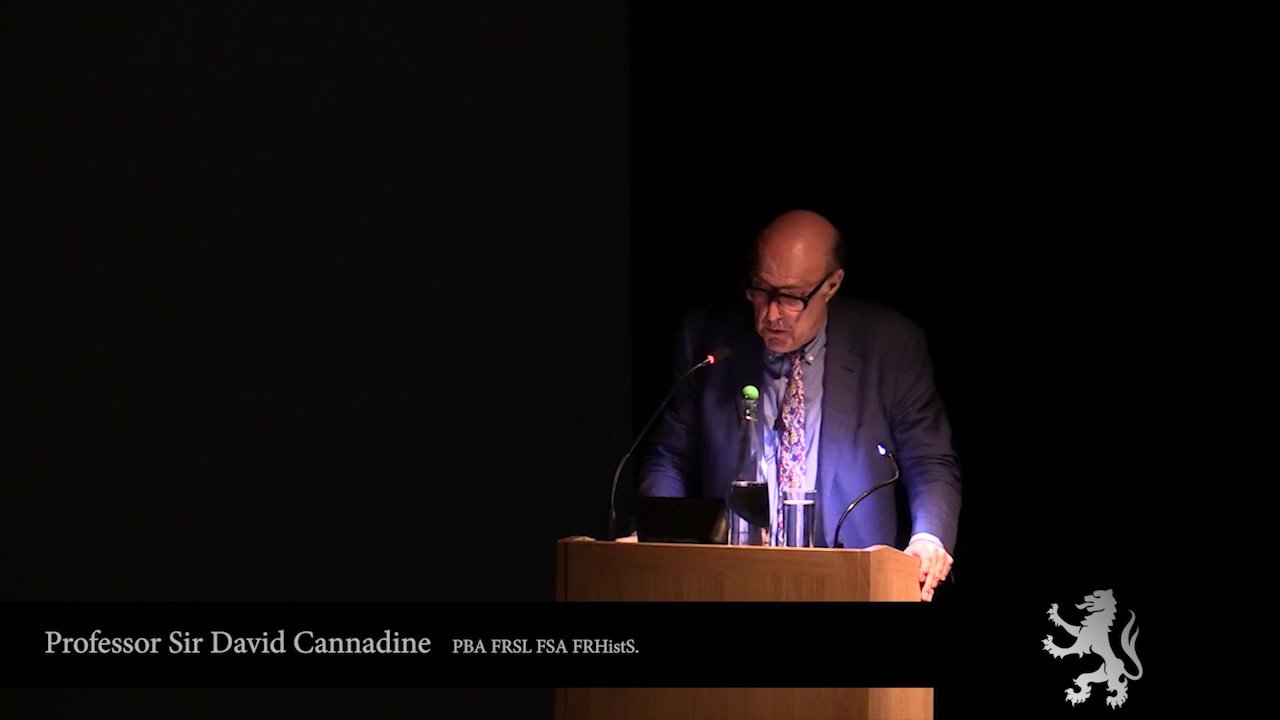
2018: Moving Stories: the working lives of migrant women in post-war Britain
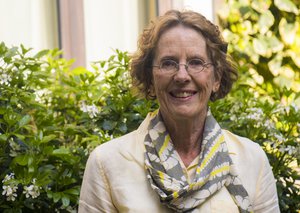
The 2018 Founder’s Lecture was given by Professor Linda
McDowell, CBE, DLitt, FBA, from The School of Geography and St John’s College.
Describing herself as a ‘labour ethnographer’, Professor
McDowell spoke passionately about her study of people’s working lives, in particular
those of migrant women who joined the British workforce after the Second World War. Illustrating her point with a quote from former colleague and
historian Sir Keith Thomas, who argued that, “Work is a virtually inescapable
part of the human condition”, she emphasised the significance of employment in
providing individuals and society with a sense of identity. In her view, migration and employment were therefore
central issues in understanding the transformation of Britain in the
second half of the twentieth century and the diversification of its workforce.
The audience of Fellows, tutors, students and alumni from St
John’s were fascinated by the personal stories of Professor McDowell’s
women interviewees, many being tales of hardship, the difficulties of
integration and the challenges of transferring skills into a different cultural
environment.
Migration and employment are of course issues which remain
extremely relevant in today’s society, perhaps especially as the UK moves
towards its exit from the European Union.
Founder’s Lecture slides can be found here
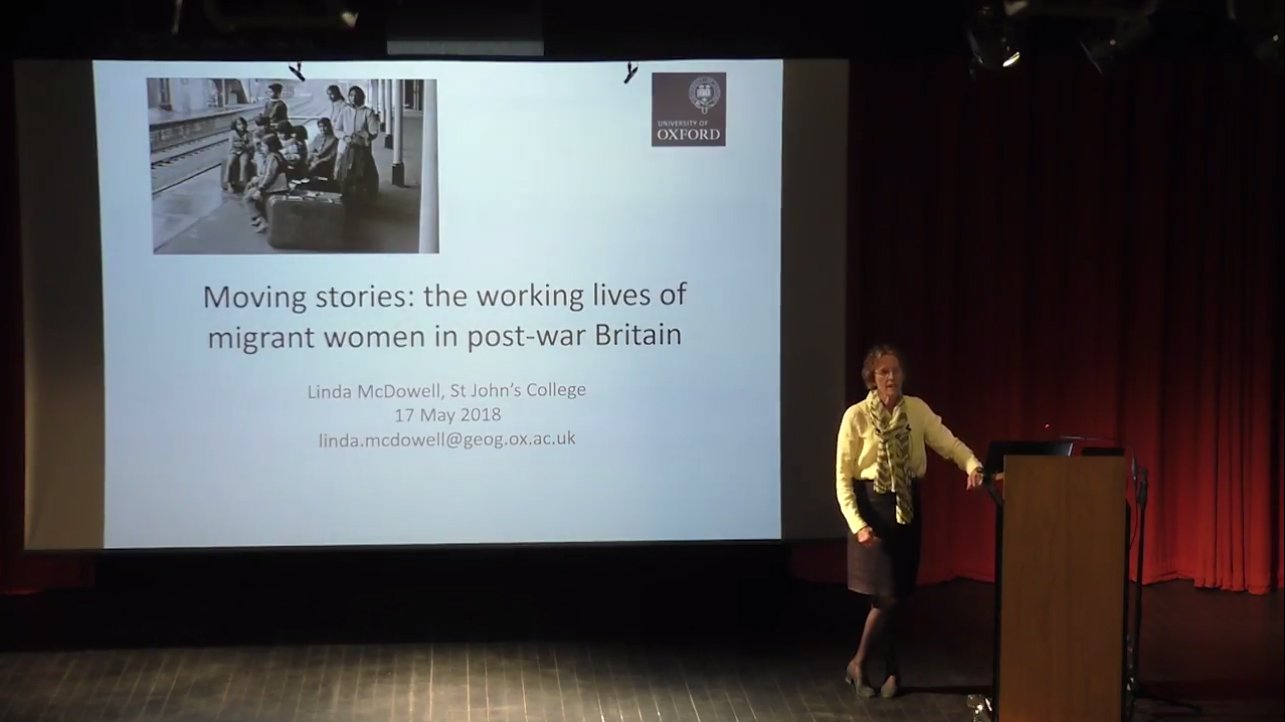
2017: Numbers and Public Policy
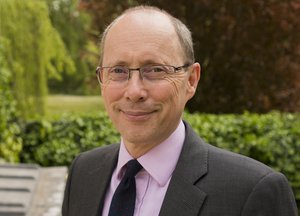 Honorary Fellow Sir Andrew Dilnot CBE
(Philosophy, Politics, and Economics, 1978) made the short trip from Nuffield
College, where he is Warden, back to St John’s to present the annual Founder’s
Lecture. His talk, entitled ‘Beauty and the Beast: Numbers and Public Policy,
or Why the Statistics Really do Matter’, was an insightful and enlightening
look at the role of statistics in the understanding of the social structure of
the UK, and at its impact on public policy. He began by reminiscing about his
first trip to Oxford for interviews. He reflected on the great impact of his
tutors, particularly of Professor John Kay, whom he credited as a role model
and someone with enormous generosity. He noted that his time at Oxford had left
him with an unashamed love of numbers, a characteristic which he considered to
be not generally accepted in society at large, something which his talk
highlighted as a cause for great concern. He used a simple exercise of asking a
multiple choice question to the audience to highlight the significance of
understanding the shape of the income distribution of the UK. He then went on
to examine how such data are organised and understood in order to help make
informed decisions about public policy, such as how to fund state mechanisms.
He demonstrated the potential danger threatened by politicians not being
statistically informed, pointing to the supposed positive outcome of speed
camera installation being largely thanks to a statistical norm, the regression
to the mean. He ended on a sombre note, showing how lack of rigour in
journalistic reporting can greatly skew public understanding. His talk was an
inspiring invitation to be more open about our love of numbers, as well as to
encourage and reward numerical literacy, which was picked up on in the question
and answer session that followed.
Honorary Fellow Sir Andrew Dilnot CBE
(Philosophy, Politics, and Economics, 1978) made the short trip from Nuffield
College, where he is Warden, back to St John’s to present the annual Founder’s
Lecture. His talk, entitled ‘Beauty and the Beast: Numbers and Public Policy,
or Why the Statistics Really do Matter’, was an insightful and enlightening
look at the role of statistics in the understanding of the social structure of
the UK, and at its impact on public policy. He began by reminiscing about his
first trip to Oxford for interviews. He reflected on the great impact of his
tutors, particularly of Professor John Kay, whom he credited as a role model
and someone with enormous generosity. He noted that his time at Oxford had left
him with an unashamed love of numbers, a characteristic which he considered to
be not generally accepted in society at large, something which his talk
highlighted as a cause for great concern. He used a simple exercise of asking a
multiple choice question to the audience to highlight the significance of
understanding the shape of the income distribution of the UK. He then went on
to examine how such data are organised and understood in order to help make
informed decisions about public policy, such as how to fund state mechanisms.
He demonstrated the potential danger threatened by politicians not being
statistically informed, pointing to the supposed positive outcome of speed
camera installation being largely thanks to a statistical norm, the regression
to the mean. He ended on a sombre note, showing how lack of rigour in
journalistic reporting can greatly skew public understanding. His talk was an
inspiring invitation to be more open about our love of numbers, as well as to
encourage and reward numerical literacy, which was picked up on in the question
and answer session that followed.
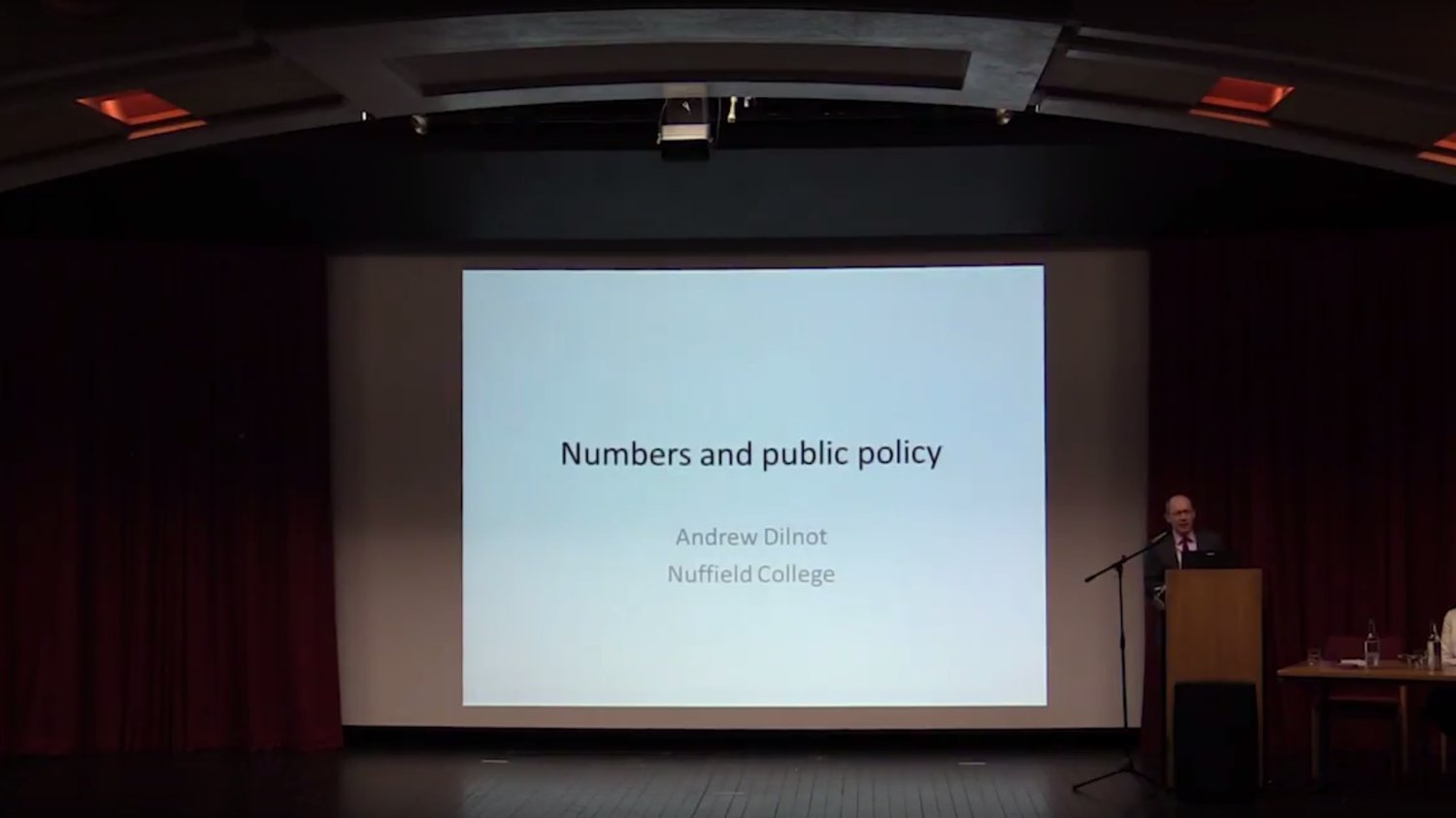
2016: The History of the Future
The 2016 Founder's Lecture was given by Honorary Fellow Professor Sir Brian Harrison FBA, FRHistS.
To an audience of Fellows, tutors, students and alumni from St John’s and across the University, Sir Brian introduced his lecture by mentioning his own education: his love of nineteenth-century British history he owed to his teachers at Merchant Taylors’ School. When he came up to St John’s in 1958 his in-College tutors for British history were Howard Colvin, Keith Thomas and Michael Hurst, and ‘all three, in their different ways, did me proud’, he said, but it was to the Victorians that he returned, and he subsequently pursued the study of Britain in several books up to 1990. As he is now 78, the future can be his only destination.
Sir Brian took as his theme the question of whether history can say anything useful about the future when economists, statisticians and specialists in ‘future studies’ have repeatedly failed to predict events. Offering a broad survey of the history of ideas about the future, from early fascination with the afterlife to the modern notion of an ‘all-absorbing present’, he focused most closely on the nineteenth and twentieth centuries. In the first of these, self-help, the free market and emancipatory legislation combined to create ‘a newly secular and self-directed approach towards the future’.
In the twentieth century, when Labour superseded the Liberals, utopias were at first important, as in the work of Robert Owen, William Morris and Edward Bellamy. It was only the experience of war and the problems posed by state control and planning that prompted the turn to dystopia through the works of H.G. Wells, Aldous Huxley and George Orwell. Sir Brian argued that both utopias and dystopias tended to ignore the complexities of politics, offering a vision of a future which Bernard Bergonzi claimed stemmed from a failure to grow up. Turning to the present-day preoccupation with the ‘frenetic’ search for news, he noted that Wells had long advocated the study of the future, and in the 1930s called for ‘Professors of foresight’. However, Sir Brian acknowledged the contradictions and difficulties of building an academic discipline of ‘future studies’, and in conclusion called for a recognition that historians and those who aim to study the future are engaged in the same enterprise, use the same sources and focus on the interaction between the individual and the environment and on setting aside determinism. They could usefully collaborate more often.
Professor William Whyte, Fellow and Tutor in Modern History, offered thanks to Sir Brian and sought questions from members of the audience. Discussion ranged from the notion of the past as utopia, to the effects of automation, the growing utilitarianism of education and even the likely outcome of the forthcoming referendum on membership of the European Union.
Audio podcast of the Founder's Lecture 2016
Download the slides of Sir Brian's lecture: Founder's Lecture 2016 slides
2015: The idea of a University - revisited
The 2015 Founder's Lecture was given by Honorary Fellow Sir Keith Burnett FRS FLSW, Vice-Chancellor of Sheffield University.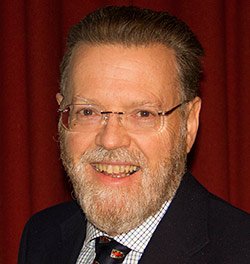 Taking as his starting point John Henry Newman’s 1854 lecture series The Idea of a University, Sir Keith reflected on the nature of universities in modern Britain and the world. He acknowledged that his was sometimes a lone voice (at least on the public stage), and he called for those in leadership to step away from hollow strategic visions and towards true scholarship and ‘People, people, people’.
Taking as his starting point John Henry Newman’s 1854 lecture series The Idea of a University, Sir Keith reflected on the nature of universities in modern Britain and the world. He acknowledged that his was sometimes a lone voice (at least on the public stage), and he called for those in leadership to step away from hollow strategic visions and towards true scholarship and ‘People, people, people’.
With an audience of Fellows, tutors, students and alumni from St John’s and across the University, Sir Keith shared the story of his own intellectual development and his journey from the Rhondda Valley, via Oxford, the US and China to the industrial heartlands of South Yorkshire. He made it clear that it had been teachers and mentors (beginning with his own father) who had inspired him to learn and to succeed.
Of his twenty years as an Official Fellow and Tutor in Physics at St John’s, Sir Keith said that even alongside exciting developments in his own and his colleagues’ research, it was the importance and excitement of teaching brilliant students that had stayed with him. An Oxford University trip to China had pushed him to learn beyond the boundaries of Physics and had convinced him that ‘universities are full of insights the world deeply needs’.
Tracing the lines of his recent experiences in Sheffield, Sir Keith spoke of the importance of rejecting trite notions of marketization and metrics. He acknowledged especially his debt to the ideas of another Fellow of St John’s, Professor John Kay. He gave examples of projects that have grown out of the brilliance of individuals, in line with Kay’s notion that we should concentrate on what we do best, not on what we do better than others.
Sir Keith argued that apprenticeships, new technology and a fusion between industry and universities can make the founding principles of Sheffield and of other universities a reality. He advised that leaders in universities should ‘Find the people, not the strategy’ and then protect those individuals. Asked about the dangers of such a method, he acknowledged that those in leadership had to be ready to take risks and ‘carry the can’ if need be.
The Founder’s Lecture was established to explore and discuss the principles that have shaped St John’s and the ideas that underlie higher education. This year’s lecture was a clear call for bold thinking in an era of political pressure and uncertainty for universities. Sir Keith ended his talk by enjoining those at St John’s to be brave and to make change, returning to Newman’s maxim that a true university ‘teaches a man to see things as they are’.
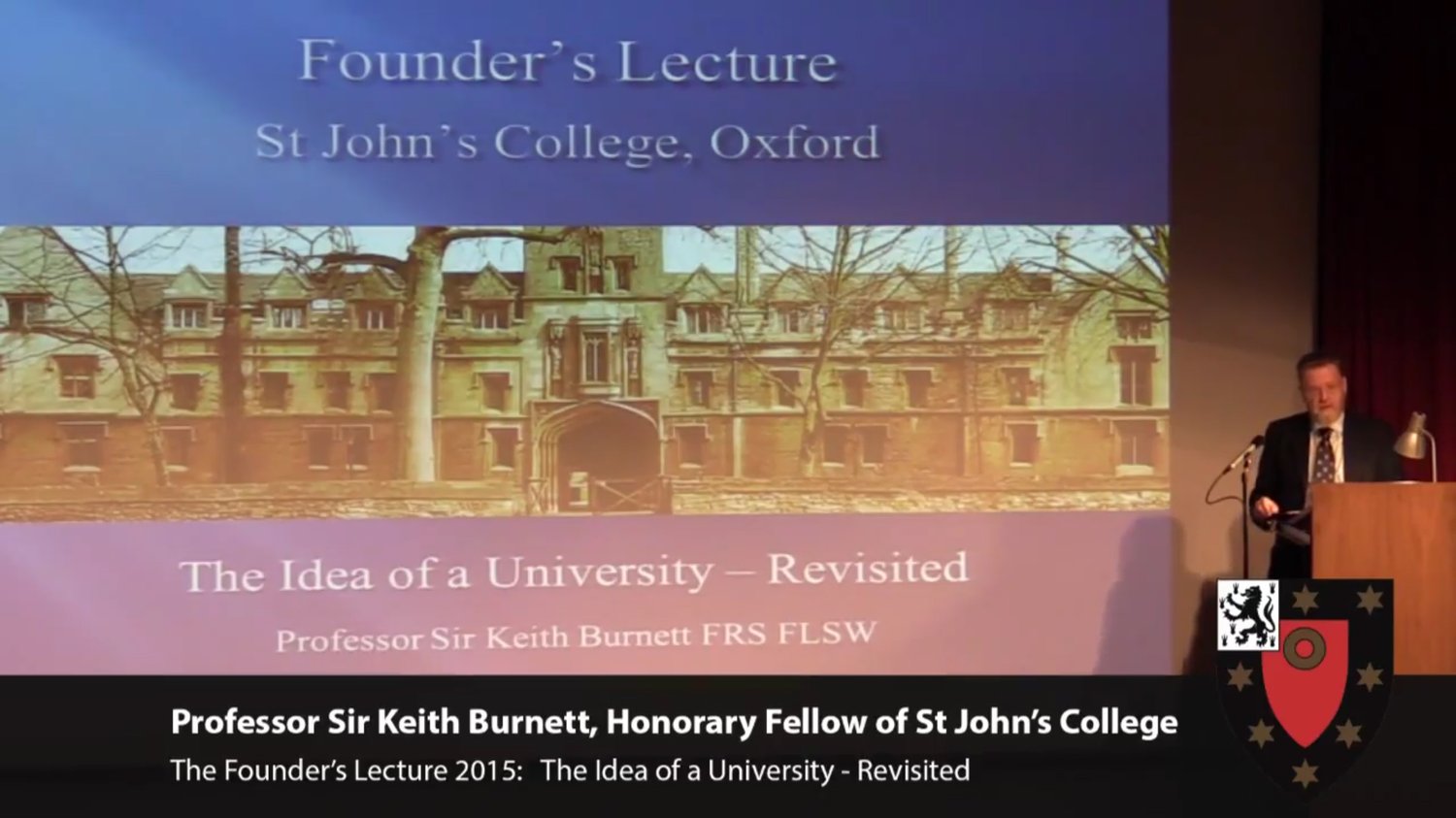
2014: Can historians write the History of Sport?
The 2014 Founder's Lecture was given by eminent historian and Emeritus Research Fellow, Dr Ross McKibbin.
Over
the last forty years there has been a huge expansion in the writing of
the history and sociology of sport. Yet what constitutes 'sport' remains
a very difficult subject to pin down - especially for historians -
since it seems to stand for so many different things. In this lecture Dr
McKibbin will try to pin it down; to see whether there is anything
useful historians can say about sport, anything that cannot be said
better, for example, by anthropologists or sociologists. Was Roger
Caillois right when he wrote in a famous book, Les Hommes et Les Jeux
(Man, Play and Games in English), that historians have contributed
nothing to the study of sport - largely because they can't?
Audio podcast of the Founder's Lecture 2014
2013: Dyslexia, Language and Learning to Read
The 2013 Founder's Lecture on Dyslexia, Language and Learning to Read was given by Professor Margaret Snowling, President of St John's.
Learning to read builds on spoken language skills; it follows that children with poor language are at high risk of dyslexia. However, since dyslexia runs in families, is it possible to intervene early to prevent a downward spiral of poor literacy, poor educational attainment and poor career prospects?
The lecture begins with a review of what we have learned from studies that follow the development of pre-school children who are at family-risk of dyslexia because they have an affected parent. These studies show that dyslexia is associated with a variety of language delays and speech difficulties in the pre-school years before reading instruction begins. The outcomes of these children in the school years reveal that dyslexia is not an ‘all-or-none condition’; within families, both affected and unaffected children share some of the same risk factors that predispose them to reading difficulties but they also differ in terms of ‘strengths’ which mitigate the risk.
Together the findings have implications for intervention which is an additional and critical protective factor. Evidence from randomized trials shows that early interventions for language and for reading difficulties can be effective in ameliorating the impact of dyslexia.
Audio podcast of the Founder's Lecture 2013Download the lecture slides and supplemental material:
- The Founder's Lecture 2013 Slides
Margaret J. Snowling: Dyslexia, Language and Learning to Read.
Early identification and interventions for dyslexia: a contemporary view
Margaret J. Snowling (Key words: Dyslexia, reading impairment, reading comprehension, early identification, intervention).http://www.sjc.ox.ac.uk/6387/PreschoolLanguageProfiles.pdf.download
Hannah M. Nash, Charles Hulme, Debbie Gooch and Margaret J. Snowling
2012: Imagination and Testimony
The 2012 Founder's Lecture
on Imagination and Testimony: Trusting What You’re Told was given by
Professor Paul Harris, Harvard University, Emeritus Fellow and formerly
Tutor in Experimental Psychology at St John's.
Experimental work
in psychology has traditionally focused on our capacity to observe and
remember reality in a more or less veridical fashion. But recent
research in developmental psychology has increasingly begun to analyze
our human ability to set reality aside and to think about unobservable
or fictional possibilities. Professor Harris will describe how this
imaginative capacity emerges in early childhood, the key role that it
plays in learning from what other people say and do, and its larger
impact on our trust in historical, scientific and religious claims.
Download the slides of Professor Harris' lecture: Founders Lecture Slides 2012
2011: The Energy Challenge
The 2011 Founder's Lecture was given by Sir Christopher Llewellyn-Smith. Sir Christopher is an Honorary Fellow of the College and a former tutor in Physics at St John's.
Sir Christopher discussed the energy challenge facing the world and what we need to do to provide sufficient energy for everybody on the planet to have a chance of leading a decent life. He considered the different options for energy generation and stressed the need to reduce fossil fuel consumption because of its effect on global warming.
Audio podcast of the Founder's Lecture 2011Download the slides of Sir Christopher's lecture: Energy Challenge
